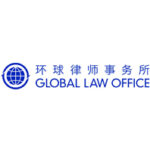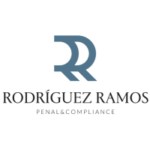-
What is the legal framework (legislation/regulations) governing bribery and corruption in your jurisdiction?
The primary legislation in the UK governing bribery and corruption is the Bribery Act 2010 (“UKBA”). The UKBA aims to provide an effective legal framework to tackle bribery and corruption in both the public and private sectors.
The UKBA came into force on 1 July 2011. It provides for a general offence of bribery, which criminalises both the receipt and payment of bribes.
Most recently, on 26 December 2023, the Economic Crime and Corporate Transparency Act 2023 (“ECCTA“) introduced a significant change in the law regarding the attribution of corporate criminal liability for economic crime, including bribery and corruption, making it easier to prosecute companies. Going forward, senior managers, acting within the actual or apparent scope of their authority, can bind an organisation when considering whether the organisation is criminally liable for an offence.
For historic offences committed in whole or part before 1 July 2011, they are prosecuted under a number of different pieces of legislation, which comprises:
- The offence of bribery at common law;
- The Public Bodies Corrupt Practices Act 1889;
- The Prevention of Corruption Act 1906; and
- The Prevention of Corruption Act 1916.
-
Which authorities have jurisdiction to investigate and prosecute bribery and corruption in your jurisdiction?
The Serious Fraud Office (“SFO“) is the main investigating and prosecuting body for bribery and corruption offences in the UK (with a slight exception in respect of Scotland, see below).
In addition, the National Crime Agency (“NCA“) is mandated to work closely with the SFO. The NCA was established in October 2013 to lead, coordinate and support the operational response to serious and organised crime, including economic crime, and oversee the national law enforcement response to bribery and corruption. On 29 May 2015, a new NCA unit was established, named the International Corruption Unit (“ICU“). The ICU is in partnership with the Department of International Development, and its stated remit is that it:
- investigates international corruption cases and related money laundering;
- investigates offences committed under the UKBA involving UK based companies/nationals or international bribery with a UK nexus;
- traces and recovers the proceeds of international corruption;
- supports foreign law enforcement agencies with international anti-corruption investigations; and
- engages with government and business to reduce the UK’s exposure to the proceeds of corruption.
Investigations conducted by the NCA are prosecuted by the Crown Prosecution Service (“CPS“).
Broadly speaking, when determining whether to commence a prosecution (against corporates or individuals), the SFO and the NCA will consider both the evidential case against the suspect (for which the test is whether a conviction is more likely than not) and whether a prosecution would be in the public interest.
In Scotland, unlike the legal systems in England and Wales, and in Northern Ireland, all criminal investigations are undertaken by Police Scotland, which are in turn overseen and then prosecuted by the Crown Office and Procurator Fiscal Service. The SFO or the NCA can investigate crimes that have occurred in Scotland provided they affect other parts of the UK. However, they cannot prosecute cases in or from Scotland.
-
How is ‘bribery’ or ‘corruption’ (or any equivalent) defined?
The UKBA defines a bribe as any advantage given to influence a person in the carrying out of a function, usually connected with their work or office.
The UKBA contains four main bribery offences:
- a general offence of bribing;
- a general offence of being bribed;
- an offence of bribing a foreign public official (“FPO“); and
- a corporate offence of failing to prevent bribery by persons associated with relevant commercial organisations (the “Failure to Prevent Offence“).
Under the UKBA, a person (natural or corporate) is guilty of a bribery offence if they:
- are in the UK, or have a “close connection to the UK”, or any aspect of the offence occurs in the UK;
- offer, promise, give, request, agree to receive, or request a financial or other advantage; and
- intend that in consequence, a person will “improperly perform” a “relevant function or activity,” or to reward them for doing so, or knowing or believing that acceptance of the advantage would of itself constitute improper performance.
A “close connection to the UK” includes, amongst other things, being incorporated under the laws of the UK, being a UK citizen, or ordinarily residing in the UK.
A “relevant function or activity” includes, amongst other things, any function of a public nature, an activity connected with a business, and an activity performed in the course of employment (i.e. the definition is not restricted to public sector bribery).
To “improperly perform” means to perform the function in breach of an expectation to do so in good faith, impartially, or while in a position of trust. The expectation test is what an English Judge considers a reasonable person in the UK would expect. Any local custom or practice specific to the jurisdiction where the bribe occurred is actively disregarded, unless it is permitted under written law in the relevant country/territory. The improper performance itself does not need to have a connection to the UK or to be carried out in the UK.
As mentioned at 3(iii) above, Section 6 UKBA includes a specific offence of bribing a FPO. Broadly, an offence will be committed where a person directly or indirectly offers, promises, or gives a financial or other advantage to an FPO in their capacity as an FPO (or to a third party at the FPO’s request) and intends to obtain or retain business or a business advantage. It only covers active bribery so there is no need to show improper performance of a function or activity, but there must be an intention on the part of the person offering, promising or giving the bribe to influence the FPO in its capacity as an FPO, meaning influencing them in the performance of their functions as a FPO. This will include any omission to exercise those functions and any use of the FPO’s position as such an official, even if not within their authority as FPO.
For the purposes of the UKBA, an FPO includes an individual who holds a legislative, administrative or judicial position of any kind; exercises a public function for or on behalf of a country or territory outside the UK or for any public agency or public enterprise of that country or territory; or is an official or agent of a public international organisation. Foreign political parties or candidates for foreign political office are not considered FPOs.
The offence is not committed where the FPO is either permitted or required by the written law applicable to the FPO to be influenced in his or her capacity as an FPO. Effectively, this is only likely to provide protection in the very limited circumstances where a written law explicitly permits or requires the payment to the FPO.
As mentioned at 3(iv) above, the Failure to Prevent Offence under section 7 of the UKBA applies to any organisation registered in the UK, or which carries on business or part of its business in the UK. The offence will be committed where a person “associated with” it bribes another person, intending to obtain or retain business for the organisation or to obtain or retain an advantage in the conduct of business for the organisation.
This is a strict liability offence that can be committed irrespective of where in the world the underlying bribe occurs. Note that a person will be “associated with” the organisation for these purposes where the person performs services for or on the organisation’s behalf. This could include an employee, agent or subsidiary of the organisation. Contractors, suppliers, joint venture entities and joint venture partners may also be associated persons. While there is a rebuttable presumption that an employee performs services for on behalf of his or her organisation, an individual’s association will be determined by reference to all relevant circumstances, not merely the relationship between the individual and the organisation.
It is a complete defence for an organisation to prove that it had adequate procedures in place to prevent bribery.
-
Does the law distinguish between bribery of a public official and bribery of private persons? If so, how is 'public official' defined? Is a distinction made between a public official and a foreign public official? Are there different definitions for bribery of a public official and bribery of a private person?
The general offences of bribery under the UKBA do not distinguish between bribes paid to a public official and those paid in the private sector. The focus of misconduct is the function that the person is performing, regardless of in which sector that function is being performed.
However, the UKBA does provide an additional offence of bribery in relation to FPOs (the Section 6 offence, as described above). This offence only applies to FPOs who exercise their function on behalf of a country or territory outside the United Kingdom.
-
Who may be held liable for bribery? Only individuals, or also corporate entities?
Both individuals and corporates can be held liable for bribery under the UKBA, with the exception of offences under Section 7 UKBA, which applies only to commercial organisations. Senior officers can be held jointly liable for the offences of their organisation if they consented to or connived in the offence and had a close connection to the UK.
It is important to note the broad jurisdictional nexus of the UKBA, whereby the offences have both intra-territorial and extra-territorial application. For individuals, this means that a person will commit the offences of bribing another person, being bribed, and bribery of FPOs: (a) if any of the constituent acts or omissions take place in the UK; and (b) if (i) no act or omission that forms part of the offence takes place in the UK; (ii) a person’s acts or omissions done or made outside the UK would form part of such an offence if done or made in the UK; and (iii) the person has a “close connection with the UK”.
A “close connection” can mean that the person is, e.g. a British citizen, ordinarily resident in the UK or a body incorporated under the law of any part of the UK. In addition, the specific offence which applies to a commercial organization under Section 7 UKBA includes a body that is incorporated under the law of any part of the UK and that carries on a business (whether in the UK or elsewhere) and any other body corporate/partnership (wherever incorporated/formed) that carries on a business, or part of a business, in any part of the UK.
The UKBA does not define the term “carries on a business or part of a business“. UK Government Guidance indicates that with regard to organisations incorporated or formed outside the UK, whether they carry on a business in the UK will be determined by the courts and the Government advocates a common-sense approach. A foreign parent which has a UK subsidiary would not necessarily be carrying on a business in the UK. The Government’s reasoning for this is that a subsidiary “may act independently of its parent company or other group companies”.
The implication appears to be that, where there is no such independence, then the parent could be carrying on a business in the UK by owning a subsidiary which does carry on business in the UK. For example, the SFO took an expansive approach towards the concept of carrying on a business in the UK in the Airbus deferred prosecution agreement (“DPA”). In that DPA, Airbus (a French / Dutch domiciled company) accepted that it fell within the scope of the section 7 offence on account of it directing the strategy of the UK business and overseeing the operations of two UK subsidiaries. That is despite the facts that the bribery conduct in question took place overseas through overseas subsidiaries (with only one count being connected to subsidiaries in the UK). The judge who oversaw and ultimately approved the DPA was willing to accept the position as part of the approval of the DPA’s terms, which indicates that companies should take a broad view of the UKBA’s application.
Additionally and as the guidance to the UKBA makes clear, there is no general carve out for entities with a limited connection to the UK. Companies will therefore need to take a view on whether the UKBA applies to them in the particular circumstances.
Under ECCTA, both individuals and companies can be held liable. If a senior manager commits a bribery offence at work and acting within the actual or apparent scope of their authority, the relevant company will also be liable for that offence. If found guilty, the organisation would face criminal conviction and a fine – this would be in addition to any sentences imposed on the offending employees. The maximum fine will depend on the particular offence charged, but for most serious crimes an unlimited fine will be available.
-
What are the civil consequences of bribery and corruption offences in your jurisdiction?
The SFO has civil recovery powers to recover property obtained through unlawful conduct without resorting to criminal prosecution. Victims of bribery may also make civil claims for damages against the briber and/or the recipient of the bribe for financial loss.
In general, civil claims for bribery appear more common in the USA than in the UK. However, they are becoming more common in the UK. In particular, there have been claims arising out of supposed mis-selling of derivatives and allegations of bribery against banks. In Libyan Investment Authority v Goldman Sachs [2016] EWHC 2530 (Ch), the LIA argued that offering an internship within Goldman Sachs to the brother of the Deputy Chairman of the LIA improperly influenced the LIA to enter into trades of $1.2 billion; in this instance the LIA’s claim was unsuccessful. The High Court ruled that the internship offered by Goldman Sachs did not go beyond the normal cordial and mutually beneficial relationship between a bank and its client. The High Court noted that if the relevant derivative trades were in fact unsuitable, they were no more unsuitable than other investments made by the LIA in the same period. The High Court gave guidance on the issue at hand by stating that, for banks to be found liable, there needs to be an element of serious impropriety.
In UBS v KWL [2017] EWCA Civ 1567 the Court of Appeal ruled that a water company could rescind a credit protection contract in relation to derivatives entered into with a Swiss bank on the basis of bribes paid by the company’s financial advisor.
In addition, more recently, there have been a couple of examples of foreign states successfully challenging companies in the English courts in civil cases involving bribery allegations. For example:
- In 2023, the Federal Republic of Nigeria successfully applied to the English court to set aside an $11 billion arbitral award that had been awarded against it in relation to a repudiatory breach of contract, on the grounds that the other party (P&ID) and individuals associated with it had committed bribery in obtaining the underlying contract which was the subject of the arbitration.
- In 2024, Mozambique was awarded $825 million in damages in the Commercial Court from Privinvest, a Gulf shipbuilder, following findings that Privinvest had bribed a former Finance Minister to approve loans to it for maritime projects.
In addition, s.90A Financial Services and Markets Act 2000 (“FSMA“) claims are increasingly a feature of UK legislation. A number of s.90A FSMA claims have been brought in recent years on the back of, or parallel to, regulatory and/or criminal investigations into listed companies. For example, a claim was brought by a group of institutional investors against Tesco PLC for losses allegedly suffered following an announcement that Tesco had overstated its profits, following the announcement of a DPA that Tesco entered into with the SFO in 2017 where they accepted responsibility for false accounting practices.
Similarly, following Glencore’s sentencing for bribery offences in November 2022, claims against it (including under FSMA) were filed in the High Court on behalf of asset managers alleging that they had suffered loss as a result of untrue statements and omissions in Glencore’s 2011 and 2013 prospectuses.
-
What are the criminal consequences of bribery and corruption offences in your jurisdiction?
An individual convicted of committing any of the general bribery offences may:
- be imprisoned for a term of up to 10 years; and/or
- be subject to an unlimited fine.
In addition, they face various ancillary orders such as confiscation, compensation and costs orders. Directors may also be disqualified from acting as a director for between two and fifteen years.
A company or partnership that commits any of the general bribery offences will be liable on conviction on indictment, to an unlimited fine, and to debarment from competing for public contracts, by virtue of entry onto a central debarment list for up to five years, on the basis that such a conviction is a mandatory exclusion ground from public tenders (see the Procurement Act 2023 (“PA 2023”), section 62 and Schedule 6).
A conviction of a company for the Failure to Prevent Offence under Section 7 UKBA is not a mandatory or discretionary exclusion ground under the PA 2023, nor is entry into a DPA in relation to bribery conduct. However, under the PA 2023, a discretionary exclusion ground exists of ‘engaging in professional misconduct which brings into question the [company’s] integrity’, which applies if a court, regulator or other authority has ruled that the company has engaged in professional misconduct which includes conduct involving dishonesty, impropriety or a serious breach of applicable ethical or professional standards (whether mandatory or not). This is sufficiently broad that it can be envisaged that a conviction under Section 7 UKBA or entry into a DPA could be captured and leave a company at risk of being prevented from bidding for public contracts for up to five years. Additionally, these mandatory and discretionary exclusion grounds apply not only to suppliers of public contracts, but also to their ‘associated persons’ – a term which is separate and distinct from ‘associated persons’ under the UKBA and means any person that a supplier is relying on to satisfy conditions of participation (except guarantors), such as subcontractors or consortia partners – and their ‘connected persons’. A ‘connected person’ under the PA 2023 is one of the following:
- any person with ‘significant control’ over the supplier;
- a director of shadow director;
- a parent or subsidiary company;
- predecessor companies of the supplier;
- any person who exercises (or has the right to exercise) significant influence or control over the supplier; or
- any person over which the supplier exercises (or has the right to exercise) significant influence or control.
All of this means that companies which participate in public procurements must ensure that their due diligence of their associated and connected persons (as defined in the PA 2023) is thorough enough to capture all of those whose conduct could put them at risk of exclusion from participation in public tenders.
Where an organisation has been convicted of a bribery offence, senior officers of the organisation who have consented to or connived in the conduct can also be convicted of the offence concerned.
-
Does the law place any restrictions on hospitality, travel and/or entertainment expenses? Are there specific regulations restricting such expenses for foreign public officials? Are there specific monetary limits for such expenses?
Hospitality travel and entertainment expenses (“Corporate Hospitality“) are vulnerable to being used for bribery and are considered a high-risk area for bribery and corruption. In the UK, Corporate Hospitality of any value can constitute a bribe if it is conveyed with corrupt intent.
Government-issued guidance relating to the UKBA provides some assistance when ascertaining what is and is not acceptable in the UK. For example, according to the SFO and CPS guidance, issued in 2019, “hospitality or promotional expenditure which is reasonable, proportionate and made in good faith is an established and important part of doing business. The Act [UKBA] does not seek to penalise such activity.” However, the SFO and the CPS will prosecute in appropriate cases where bribes have been disguised as legitimate business expenditure.
Generally speaking, Corporate Hospitality is permitted where it is transparent, proportionate, reasonable and made in good faith. Corporates are expected to have proportionate procedures governing Corporate Hospitality, including record keeping, monitoring and providing training to all relevant people.
While legislation does not provide guidance on appropriate monetary limits, a company’s gifts and hospitality policy ought to set this out, alongside an authorisation process for Corporate Hospitality over a certain amount. The policy should also set out clear guidelines regarding Corporate Hospitality to FPOs, in line with the risk profile of that particular company.
As a general point, it is important for an organisation to be able to show that payments to a third party or agent reflect a reasonable level of compensation for the services being provided; this would reduce the chances of any such payment being viewed as corrupt. The UK government has confirmed that legislation should not be used to penalise legitimate and proportionate hospitality, including in respect of FPOs, but its view is that hospitality is also an issue best considered by prosecutors rather than by Parliament.
For hospitality events, it is important to check whether the proposed guests are subject to hospitality/gift restrictions imposed by their industry or professional governing bodies. By way of example, the UK’s Ministry of Defence has previously issued guidance restricting hospitality events for Ministry of Defence staff. Such guidance is not always publicly available. When offering a hospitality invitation, it is prudent to enquire about any applicable standards or guidance that may apply to the intended guest.
Various factors will be relevant to an objective analysis of whether an offer of hospitality or gift may be perceived to be improper and at risk of being viewed as a bribe. Such factors include the context of the provision of the event / gift; whether a reasonable person would regard the event / gift as unduly extravagant in the circumstances (including, for example, the relative seniority of the person being provided with hospitality and the likelihood that they would be improperly influenced by it); whether the event / gift would be proportionate; the nature of the benefits which might be secured from the guest or recipient; whether the event / gift is being offered in conjunction with (or in close proximity to) any procurement or contract negotiations; and whether there is transparency about the provision of the event / gift.
-
Are political contributions regulated? If so, please provide details.
The UKBA does not include any specific provisions in relation to political contributions, although the general offences of giving or receiving a bribe may be applicable. Separately, various other pieces of legislation apply to political contributions.
-
Are facilitation payments prohibited or regulated? If not, what is the general approach to such payments?
In the UK, facilitation payments are illegal, and paying one could lead to a prosecution under the UKBA, specifically section 1 (offence of bribing another person) or section 6 (bribing a FPO). If the individual paying the bribe was an associated person of a company, the company could also be prosecuted under section 7 (the Failure to Prevent Offence).
A facilitation payment refers to the practice of paying a small sum of money to a public official as a way of ensuring that they perform their routine, nondiscretionary duties, either promptly or at all. The SFO has stated that facilitation payments are illegal under the UKBA, regardless of their size or frequency.
In the 2011 UKBA guidance , the UK government recognised “the problems that commercial organisations face in some parts of the world and in certain sectors” (see UKBA Guidance). However, in May 2019, the House of Lords’ Select Committee on the UKBA recommended no changes in the law in relation to facilitation payments, stating that it would be a retrograde step to legalise facilitation payments. Moreover, in its response to the Select Committee’s conclusions, the UK Government agreed that facilitation payments will remain a form of bribery and should not be legalised. The Government confirmed that there was no plan to change the law in this regard.
-
Are there any defences available to the bribery and corruption offences in your jurisdiction?
It is a defence for a person charged with an offence of bribing another person or being bribed to prove that the person’s conduct was necessary for the proper exercise of any function of an intelligence service, or the proper exercise of any function of the armed forces when engaged on active service.
In the case of facilitation payments, the defence of duress is likely to be available in the case of payments made to protect “life, limb or liberty”.
There are no other defences available to the general bribery offences where an individual or corporation pays or receives a bribe.
The Failure to Prevent Offence, under Section 7 UKBA, is a strict liability offence. However, if an organisation proves, on the balance of probabilities, that it had adequate procedures in place to prevent persons associated with it from engaging in bribery. The UKBA guidance (linked at question 11 and described further at question 14 below) advocates for a principle-based approach, comprising: (i) adequate procedures; (ii) top-level commitment; (iii) risk assessments; (iv) due diligence; (v) communication, including training; and (vi) monitoring and review.
-
Are compliance programs a mitigating factor to reduce/eliminate liability for bribery and corruption offences in your jurisdiction?
For the purpose of Section 7 UKBA only, it is a defence for an organisation to prove, on the balance of probabilities, that it had adequate procedures in place to prevent bribery. The effectiveness of an organisation’s compliance programme will be relevant to the consideration of whether it had adequate procedures.
Additionally, the SFO will assess the effectiveness of an organisation’s compliance programme when investigating it and it will inform the SFO’s decision-making in respect of: the public interest test; whether an organisation should be invited to enter into negotiations for a DPA; and it will be a relevant factor in respect of a charging decision (for example, the Guidance on Corporate Prosecutions provides that an additional public interest factor in favour of prosecution is that the offence was committed at a time when the company had an ineffective corporate compliance programme).
-
Has the government published any guidance advising how to comply with anti-bribery and corruption laws in your jurisdiction?
The UK Ministry of Justice (“MoJ“) has issued guidance on procedures that commercial organisations can put into place to help prevent persons associated with them from bribing, with additional guidance provided by the SFO and the CPS. The key documents are as follows:
- ‘The Bribery Act 2010—Guidance about procedures which relevant commercial organisations can put into place to prevent persons associated with them from bribing’ (the “MoJ guidance“) (see here)
- ‘Bribery Act 2010: Joint Prosecution Guidance of the Director of the Serious Fraud Office and the Director of Public Prosecutions’, last reviewed in September 2019 (the “SFO/CPS guidance“) (see here); and
- ‘Evaluating a Compliance Programme’ (“SFO Compliance Programme guidance“) (no longer publicly available)
- ‘Guidance on Corporate Co-operation and Enforcement in relation to Corporate Criminal Offending’ (“SFO Co-operation guidance”) (see here)
The MoJ guidance is not prescriptive as to the nature of systems and procedures that organisations should implement in order to meet the adequate procedures standard necessary to provide a defence against the Failure to Prevent Offence. A one-size-fits all approach is simply not possible; whether an organisation has adequate procedures in place to prevent bribery will depend on the specific facts and circumstances of the case.
However, the guidance highlights six principles of bribery prevention that an organisation’s officers should consider when drafting an anti-bribery compliance program:
- proportionate procedures: an organisation’s internal procedures to prevent bribery by persons associated with it ought to be proportionate to the bribery risks it faces and to the nature, scale and complexity of the organisation’s activities;
- top-level commitment: the management of an organisation (i.e., directors, owners or any other equivalent body or person) ought to be committed to preventing bribery by persons associated with it and the management should endorse a culture in which bribery is never acceptable;
- risk assessment: an organisation should consider the nature and extent of its exposure to potential risks of bribery on its behalf by persons associated with it and its assessment ought to be “periodic, informed and documented”;
- due diligence: an organisation must implement due diligence procedures, applying a proportionate approach, in respect of persons who perform or will perform services for or on its behalf;
- communication (including training): an organisation should seek to ensure that its anti-bribery policies are understood throughout the organisation via internal and external communication and, if appropriate, training; and
- monitoring and review: an organisation needs to periodically monitor and review its anti-bribery procedures, and where necessary, make improvements.
The SFO/CPS guidance is a joint guidance for prosecutors setting out the Directors’ approach to deciding whether to bring a prosecution under the UKBA which can be instructive when considering points the prosecutor will likely focus on.
The SFO Compliance Programme guidance published in 2020 is the SFO’s internal guidance on evaluating compliance programmes (which forms part of its operational handbook). The guidance outlines how the SFO will examine an organisation’s compliance programme and includes a summary of the six principles of adequate procedures, described above.
Most recently, the SFO Co-operation guidance outlines the factors which the SFO will take into account in deciding whether or not to charge a corporate or invite it to DPA negotiations.
-
Are mechanisms such as Deferred Prosecution Agreements (DPAs) or Non-Prosecution Agreements (NPAs) available for bribery and corruption offences in your jurisdiction?
DPAs have been available in England and Wales (through the Crime and Courts Act 2013) since 2014 as an alternative to criminal prosecution. DPAs are not currently available in Scotland or in Northern Ireland.
To date, most major bribery and corruption cases in the UK have been settled by way of a DPA.
Subject to the discretion of a prosecutor, they may invite a company to enter into negotiations to agree a DPA where evidence supports a prosecution of a company, and a DPA is deemed to be in the public interest. A DPA is an agreement that the company’s prosecution will be deferred subject to certain conditions, which usually include the payment of a financial penalty, payment of compensation, disgorgement of profits arising from the wrongdoing, and a financial contribution to the costs of the investigation. The DPA is subject to judicial agreement. If the corporate complies with the terms of the DPA, at the conclusion of the set period the criminal proceedings will be formally discontinued. If the company breaches the terms and the breach cannot be remedied, the criminal proceedings will resume.
The key features of DPAs are that they enable a corporate body to make full reparation for criminal behaviour without the collateral damage of a conviction (for example, sanctions that could put the company out of business and destroy the jobs and investments of innocent people); they are concluded under the supervision of a judge, who must be convinced that the DPA is ‘in the interests of justice’ and that the terms are ‘fair, reasonable and proportionate’; they avoid lengthy and costly trials; and they are transparent, public events.
DPAs are not available to individuals.
The SFO and CPS published a Code of Practice explaining the DPA process. In addition, in summer 2019 the SFO published further internal guidance as part of its Operational Handbook on what it considers amounts to cooperation with its investigations. This included an expectation on companies to report suspected bribery and corruption within a reasonable time of the suspicion arising. Cooperation was stated as being a key element of any future charging decision. In practice, substantial cooperation needs to be shown by the corporate. This guidance is no longer publicly available. In April 2025, the SFO published additional external guidance on corporate co-operation, which provided a firmer indication that if a corporate self-reports, they will be invited to negotiate a DPA, rather than be prosecuted, unless exceptional circumstances apply. In addition, the SFO set out its intention to conclude DPA negotiations within 6 months of sending an invite. The expectation of substantial cooperation, alongside a self-report, was also included in this new guidance, including in respect of waiving privilege over relevant material, addressed further in questions 22 and 26 below.
-
Does the law in your jurisdiction provide protection to whistle-blowers? Do the authorities in your jurisdiction offer any incentives or rewards to whistle-blowers?
For individuals, there are employment law protections for whistleblowers in the UK in certain circumstances (a “qualifying disclosure” pursuant to Employment Rights Act 1996). However, other than entering into an agreement pursuant to section 73 of Serious Organised Crime and Police Act 2005, which typically involves an admission of guilt and a protracted process with no guarantees, there is no formal scheme for protection from prosecution or provision of leniency.
There are currently no incentive or reward schemes available for individuals in relation to criminal enforcement investigations in the UK.
In December 2024, an ‘Office of the Whistleblower Bill’ was put forward in the House of Commons, aiming to establishing an independent Office of the Whistleblower with powers to direct whistleblowing investigations and order redress of detriment suffered by whistleblowers. However, previous attempts to push through similar bills have stalled.
Incentivising whistleblowers has also received vocal support from the current SFO director, Nick Ephgrave QPM, and the introduction of a whistleblower incentivisation scheme was confirmed as one of the SFO’s priorities for 2025-26 in its most recent business plan.
-
Does the law in your jurisdiction enable individual wrongdoers to reach agreement with prosecutors to provide evidence/information to assist an investigation or prosecution, in return for e.g. immunity or a reduced sentence?
N/A
-
How common are government authority investigations into allegations of bribery? How effective are they in leading to prosecutions of individuals and corporates?
Enforcement investigations by UK state agencies into bribery and corruption are a fairly common occurrence. They are typically instigated and led by the SFO but are also prosecuted by agencies such as the CPS working in partnership with investigators from regional police forces. While the SFO has secured convictions in respect of significant corporate entities in recent years (e.g. Glencore and Petrofac) as well as DPAs (e.g. Rolls-Royce, Serco, Airbus) there are concerns surrounding the SFO’s ability to secure convictions and maintain investigations in respect of individuals in respect of the same allegations.
For example, in 2021, an SFO prosecution of two Serco executives was thrown out due to disclosure errors, despite the SFO having secured a DPA against Serco for the same conduct. In 2023, the SFO abandoned its prosecution of three former G4S employees for fraud because it had been unable to resolve disclosure issues in the case – again, despite a DPA having been negotiated with G4S in 2020.
The serious disclosure-related problems faced by the SFO in these cases prompted the Independent Review of Disclosure and Fraud Offences which is discussed later in this chapter (see questions 28 & 29 below).
-
What are the recent and emerging trends in investigations and enforcement in your jurisdiction?
Nick Ephgrave QPM was appointed as the new director of the SFO in July 2023. Under Ephgrave’s leadership, the SFO has stepped up dawn raids and enforcement activity while closing several long-running investigations.
Although Ephgrave has called for a greater emphasis on UK domestic fraud matters, the SFO’s announcement in March 2025 of a new anti-corruption alliance with French and Swiss law enforcement authorities suggests it is still keen to play a prominent role in international anti-bribery and corruption efforts.
The UK’s other enforcement agencies have also shown a greater appetite to pursue large cases in recent years. In 2023, an HMRC investigation and CPS prosecution resulted in the conviction of a businessman for fraud and payment of a £652 million tax settlement. In the same year, the CPS secured its first DPA for £615 million in respect of a global online sports betting and gaming business.
-
Is there a process of judicial review for challenging government authority action and decisions? If so, please describe the key features of this process and remedy.
Judicial review exists as of right for any individual with standing to challenge the decision of a public body. The decisions of investigation and prosecution agencies are therefore capable of challenge in this way. A key feature of judicial review is that proceedings must be brought promptly and in any event, typically, within three months of the decision being challenged. The three main bases for bringing judicial review, in broad terms, are: (i) illegality; (ii) procedural unfairness/impropriety; and (iii) unreasonableness/irrationality. Human rights are often used as a basis to plead illegality. While any decision, including charging decisions, can technically be challenged, the hurdle is very high.
Recent challenges to the SFO have focused on issues of disclosure and privilege ((1) R (on the application of AL) v Serious Fraud Office [2018] EWHC 856; (2) SFO v ENRC [2018] EWCA Civ 2006 and subsequent JR applications; (3) R (KBR Inc.) v SFO [2018] EWHC 2368 (Admin)).
-
Have there been any significant developments or reforms in this area in your jurisdiction over the past 12 months?
ECCTA has introduced a number of significant changes in this area. As well as the incoming failure to prevent fraud offence (see question 20 below), section 196 of ECCTA modified the law on corporate criminal attribution relating to certain economic crime offences (including fraud, money laundering and bribery offences). This change lowers the threshold for corporate attribution, with the effect that corporates can now be held liable for certain economic crime offences committed by their senior managers acting within the actual or apparent scope of their authority.
-
Are there any planned or potential developments or reforms of bribery and anti-corruption laws in your jurisdiction?
The new corporate offence of failing to prevent fraud introduced by section 199 ECCTA will be implemented on 1 September 2025. The new offence, which is modelled to a significant extent on the Failure to Prevent Offence under the UKBA, imposes strict liability on large companies who fail to prevent persons associated with them committing fraud offences on their behalf. It will be a defence for companies to establish that they had reasonable fraud prevention procedures in place. In November 2024, the government published guidance to organisations on the new fraud offence which, amongst other things, set out key considerations for organisations seeking to develop reasonable fraud prevention procedures. Further information about the guidance is set out in question 28 below.
-
To which international anti-corruption conventions is your country party?
The United Nations Convention Against Corruption; the United Nations Convention Against Transnational Organised Crime; the Organisation for Economic Co-operation and Development (OECD) Convention on Combating Bribery of Foreign Public Officials in International Business Transactions; the Council of Europe Criminal Law Convention on Corruption (with Additional Protocol); the Council of Europe Civil Law Convention on Corruption; and the Agreement for the Establishment of the International Anti-Corruption Academy.
-
Do you have a concept of legal privilege in your jurisdiction which applies to lawyer-led investigations? If so, please provide details on the extent of that protection. Does it cover internal investigations carried out by in-house counsel?
Yes. If a document is covered by legal professional privilege in England and Wales, it entitles the party claiming privilege to withhold production from those seeking to inspect it or have it produced. That is so even where the party seeking inspection is a government authority or regulatory body. The two forms of legal professional privilege in England and Wales are legal advice privilege and litigation privilege.
Legal advice privilege protects from disclosure confidential communications between client and lawyer for the dominant purpose of giving or receiving legal advice or assistance. There is no need for litigation to be in train or contemplation for this form of privilege to apply. It includes seeking advice on what is prudent or sensible in a relevant legal context. The recent case of Al Sadeq v Dechert [2024] EWCA Civ 28 dealt with the extent to which legal advice privilege can apply to investigatory work carried out by a law firm. This case confirmed that the work undertaken by a lawyer during an investigation would engage legal advice privilege where it is being done with the benefit of “the lawyer’s skills as a lawyer” and, therefore, that the communications that would attract legal advice privilege would include a broader context of documents created in the course of the investigation.
Litigation privilege protects from disclosure confidential communications between client and lawyer or between client or lawyer and third parties for the dominant purpose of obtaining information in connection with, or of aiding or conducting, litigation, that has commenced or is in reasonable contemplation. Lawyers conducting investigations seeking to rely on this form of privilege should be careful to assess whether the investigation is concerned with adversarial proceedings and that they are in reasonable contemplation at the time.
In the context of criminal enforcement, litigation privilege would apply if litigation, including prosecution, is underway or is a real likelihood. For litigation privilege to apply to an interview, the dominant purpose of the interview must be to prepare for the litigation.
The purpose of any communication is key. In relation to streams of communications, such as email chains, the concept of ‘continuum of communications’ may be applied. That is, whether the communication is part of a series of communications sent for the dominant purpose of seeking and receiving legal advice from lawyers. As opposed to where the request is otherwise for commercial or non-legal practical advice.
Whether a lawyer is an in-house or external lawyer is not a determinative factor in England and Wales, but an in-house lawyer is much more likely to be asked for advice on commercial or non-legal matters within their function than an external lawyer. This may perhaps lead to a greater degree of scrutiny surrounding a claim to privilege arising by virtue of the involvement of an internal lawyer.
The importance of corporates potentially waiving legal privilege when dealing with the SFO in respect of an ongoing investigation was restated in the SFO’s Corporate Guidance published on 24 April 2025. While the Guidance provides that corporates will not be penalised for maintaining a ‘valid’ claim of privilege over relevant material, it also makes clear that the SFO would consider a waiver of privilege to be a significant cooperative act as, in the SFO’s view, it can help expedite matters.
-
How much importance does your government place on tackling bribery and corruption? How do you think your jurisdiction’s approach to anti-bribery and corruption compares on an international scale?
The UK has been described by the OECD as a “major enforcer of the foreign bribery offence”.
In Transparency International’s Corruption Perception Index, the UK’s scores have been high. The UK was ranked 20th in 2024, retaining its position from 2023, but representing a drop of two places from 18th in 2022 out of a total of 180 countries.
The UK government is clear on its message that it wants to combat bribery and corruption. However, to enable law enforcement organisations to do that well on an international scale requires not just greater investment in their resources and the withering court estate, but also time spent in properly addressing and amending the disclosure process so that it properly faces the digital age.
The SFO director, Nick Ephgrave, has made a number of public announcements regarding the SFO’s appetite to pursue cases. The publication of the SFO’s Corporate Guidance in April 2025, along with the new powers granted to it under ECCTA (including the extension of its pre-investigation powers under section 2A of the Criminal Justice Act 1987) demonstrate both its commitment and its ability to do so. While the initial investigations and charging decisions made by the SFO shortly after Nick Ephgrave’s appointment appeared to suggest a greater focus on domestic fraud cases over international or larger-scale bribery and corruption cases, recent actions by the SFO have suggested a renewed focus in this area:
- In April 2025, the SFO announced a new investigation into Blu-3 and former associates of Mace Group, relating to the suspected payment of over £3 million in bribes. On the day of this announcement, the SFO made three arrests and searched five properties.
- Also in April 2025, the SFO announced that it was charging United Insurance Brokers Ltd. with failure to prevent bribery of state officials in Ecuador between October 2013 and March 2016. If this proceeds to trial, this will be the first time that a section 7 offence of a corporate has gone before a jury.
- In November 2024, the SFO launched an investigation into suspected bribery and corruption at Thales Group.
In addition, the new Labour Government announced in December 2024 that it had appointed Baroness Margaret Hodge as the UK’s new Anti-Corruption Champion (a position which had been vacant since 2022). At the same time, the Foreign Secretary announced a further £36 million in support for the NCA’s work against corruption.
Finally, as mentioned above, the SFO has re-stated its commitment to international co-operation against bribery and corruption by its engagement with France’s Parquet National Financier (PNF) and Switzerland’s Office of the Attorney General to create a new International Anti-Corruption Prosecutorial Taskforce.
-
Generally, how serious are corporate organisations in your country about preventing bribery and corruption?
UK companies operate in a highly regulated environment, governed by what is widely considered to be one of the toughest pieces of anti-corruption legislation globally, namely the UKBA.
The UKBA is widely considered as being responsible for dissuading companies from allowing bribery to happen in their name and providing a credible threat of prosecution for those who do not. Since the introduction of the UKBA, there has been a profound shift in corporate attitudes to bribery and corruption compliance. Companies are now far more likely than not to proactively implement bribery and corruption policies and procedures tailored to their particular business risk, given the strict liability offence for corporates under section 7 of the UKBA unless they have “adequate procedures” in place to prevent bribery.
However, despite the UKBA heralding a culture change in how businesses assess their risk for facilitating bribery, it is subject to a number of criticisms. Recently, the most vocal complaints relate to the lack of prosecutions to date. As the House of Lords Select Committee on the UKBA noted in its 2019 post-legislative scrutiny report, the number of prosecutions has been “low”.
In addition, most cases to date have been resolved by way of a DPA (12 to date). This has the consequence of a lack of jurisprudence around the offence itself and the corporate defence, including issues around jurisdiction and what constitutes adequate procedures. There is therefore a concern that if enforcement levels do not increase then compliance with the UKBA will also decrease. In a number of high-profile cases, the SFO has failed to successfully prosecute the individuals for the same conduct that formed the subject of DPA entered into with the corporate entity (see the response to question 25 for further details). This has potentially acted as a deterrent for corporates when deciding whether to self-report to the SFO.
A further criticism in the UK is that the UKBA has a more aggressive effect on SMEs. There are many reasons for this including the high cost of complying with the UKBA’s adequate procedures defence or a perceived lack of sophistication around the offence of failing to prevent bribery. This can result in a mixed approach in how companies tackle the issue of compliance.
However, as mentioned above, a significant change was introduced in December 2023 under ECCTA in respect of the law regarding the attribution of corporate criminal liability for economic crime (including bribery and corruption), which is intended to make it easier to prosecute companies for the criminal actions of their senior managers. In addition, the new SFO Corporate Guidance is intended to encourage companies to self-report matters to them by providing greater certainty that they will be offered a DPA, rather than be prosecuted, setting out timeframes within which the SFO will make decisions around opening an investigation or inviting a company to negotiate a DPA. These developments are intended to increase the seriousness with which organisations within the UK take bribery and corruption risks internally and encourage them to self-report. In January 2025, Nick Ephgrave told the Law Society Gazette that he predicted that DPAs would, as a result, come back “with a bit of a vengeance.“
-
What are the biggest challenges businesses face when investigating bribery and corruption issues?
Businesses can uncover potential misconduct through an increasing number of means, including audits, screening procedures, due diligence exercises on commercial transactions, litigation, whistleblowing, investigative journalists, cybercrime or data breaches, to name a few. A fundamental question for these companies is whether, how and when to start an internal investigation into these allegations.
Every internal investigation will turn on its own facts but there are some key considerations which, if dealt with appropriately at the outset, can dramatically impact the effectiveness of the investigation. We deal with these in turn below:
- Businesses will have to consider whether there is an obligation to notify any relevant authorities. The answer to this will impact the approach to the investigation more generally. It is worth noting that there is no obligation to notify the SFO, however the DPA Code of Practice states that it will be a public interest factor against prosecution if a company self-reports “within a reasonable time of the offence coming to light“. This will be something to consider in the context of the particular investigation subject matter. The SFO’s Corporate Guidance published in April 2025 has sought to further incentivise corporates to self-report by promising that they will be offered the chance to negotiate a DPA, instead of being prosecuted (save for in exceptional circumstances). If a corporate does not self-report, the guidance suggests that they will only be offered the chance to negotiate a DPA if they can otherwise provide “exemplary co-operation with investigation” (which would likely include agreeing to waive legal privilege over investigation materials). In addition, this new guidance now provides a 6-month timeframe from a self-report within which the SFO will decide whether to open an investigation or not. In terms of the timing of any self-report, Nick Ephgrave has said this should be as soon as a corporate has reasonable suspicion that a criminal offence has been committed and the guidance says that the SFO does not expect corporates to wait until they have fully investigated the matter internally.
- It is important to take stock at the outset and assess whether an internal investigation ought to be commenced. There are many factors in favour of taking such steps, such as gaining a better understanding of the facts to allow for more informed decision making. However, there are significant downsides including the fact it is a resource heavy process. The allegations therefore need to be assessed as having some merit and legal advice should be sought on this point.
- Defining the investigation scope is of fundamental importance. It helps limit wasted costs and time, and will also act as a record of the corporate thought process at the time of the investigation, in the event it is scrutinised at a later date. The scope will be dictated by the particular issues in question, the timescale and whether there are concurrent investigations or litigation, and what jurisdictions are involved.
- Document management and preservation of documents is another important step. Handling documents in an investigation requires consideration of a number of involved issues such as data privacy, security of evidence and the effective use of technology to assist with document review. Having taken the necessary steps to preserve the relevant data, it will then be necessary to extract it and make it available for review. It is important to note that specific issues will need to be considered when data relevant to the internal investigation is located in multiple jurisdictions (including where it is hosted on cloud-based or group-wide servers that might be based physically overseas).
- The importance of record-keeping cannot be underestimated. A key decisions log should be maintained throughout, including any enquiries made and interviews conducted as part of the investigation.
-
What are the biggest challenges enforcement agencies/regulators face when investigating and prosecuting cases of bribery and corruption in your jurisdiction? How have they sought to tackle these challenges? What do you consider will be their areas of focus/priority in the next 18 months?
The reviews of Sir David Calvert-Smith and Brian Altman KC into prosecution failings by the SFO provide reports on the considerable challenges facing UK enforcement agencies dealing with these sorts of offences, as does the Independent Review of Disclosure and Fraud Offences by Johnathan Fisher. It is beyond the scope of this exercise to go into that level of detail here but the below highlights some of the key issues.
The SFO has been beleaguered by staffing issues, in both recruiting and retaining experienced staff, as well as in attracting and retaining external counsel to work on its matters. The SFO announced in its five year plan in April 2024 that a new internal academy hoped to provide assistance with that. They are likely to require better funding to assist with that also.
The advent of vast amounts of data in modern multi-jurisdictional investigations has led to failures in the disclosure processes at the SFO. In the worst examples, this led to overturned convictions in 2021 and 2022 from individuals convicted in the ‘Unaoil’ prosecution. The SFO has stated in its five year plan that it intends to harness artificial intelligence, however it is not clear how AI can be deployed in the most labour intensive area of dealing with prosecution disclosure obligations under the relevant legislation (explored further below at question 27).
In addition, the SFO has been unsuccessful on a number of matters where it has secured DPAs in its subsequent prosecution of individuals (e.g. Serco and Tesco). Some have suggested that the statements of fact in agreed DPAs do not compare favourably to the evidence as it plays out before a jury; which can be used to advantage by the defence. Perhaps therefore, a greater overall strategy is required at an earlier stage in the life of an investigation so as to avoid these types of situations occurring again. Notably, however, in 2023 the SFO secured its first conviction of an individual in a DPA-related matter in its successful prosecution of Roger Dewhirst. Whilst undoubtably a step in the right direction, this conviction should be viewed with caution since Dewhirst pleaded guilty and therefore the evidence did not have to endure a trial, while the individuals who pleaded not guilty in this case for related conduct were subsequently acquitted by a jury. Finally, the announcement by the new US administration in February 2025 that enforcement of the US Foreign Corrupt Practices Act 1977 would be paused for at least 180 days, may make it more difficult for the SFO to bring international bribery cases on which it would previously have co-operated with the US Department of Justice. Conversely, it may mean that the SFO seeks to cooperate with other foreign agencies, as it has in the past, albeit perhaps without the involvement of the US.
-
How have authorities in your jurisdiction sought to address the challenges presented by the significant increase of electronic data in either investigations or prosecutions into bribery and corruption offences?
Investigators in England and Wales have a duty to record, retain and reveal information to the prosecution pursuant to obligations under the Police and Criminal Evidence Act 1984 (PACE). There are duties on the prosecution under the Criminal Procedure and Investigation Act 1996 (CPIA) to provide to the defence any documents in the possession of the prosecution which assist the case for the defence or undermine the prosecution’s case. In turn those duties are set out in various codes and guidance including inter alia the CPIA Code of Practice, PACE codes of practice and the Attorney General’s guidelines on disclosure.
In order to comply with the requirements of disclosure, fundamentally it is the prosecution who must certify that they have been able to review the material provided to them and to assert that all that material which meets the test for disclosure has been provided. International bribery and corruption investigations typically involve vast amounts of data obtained from a huge number of sources and extracted from all kinds of different devices. In order to comply with disclosure in an analogue manner, therefore, a great amount of cost is required in order for prosecution lawyers to review the material.
We have seen signals that the SFO are preparing for more use of technology to assist. In its recent five year plan, the SFO said that it intended to make better use of technology including AI. It will be a difficult exercise to make use of such technology while also seeking to comply with the current regime, however.
In the findings of Jonathan Fisher KC in his Independent Review of Disclosure and Fraud Offences (his preliminary findings were published on 24 April 2024, followed by the final report in March 2025), some recommendations have been made which include: setting up a Criminal Justice Digital Disclosure Working Group and creating a cross-agency protocol for the ethical use of AI in disclosure; and amending the Code of Practice to allow the use of technology in reviewing and identifying relevant material and/or material that meets the disclosure test.
-
What do you consider will be the most significant bribery and corruption-related challenges posed to businesses in your jurisdiction over the next 18 months?
Statements made by Nick Ephgrave in the past few months – as well as the announcement of new bribery and corruption investigations – demonstrate that the SFO has a renewed focus on pursuing bribery and corruption cases, as opposed to the SFO’s director initial focus on domestic fraud cases when he first took on the role in September 2023. The SFO Business Plan for 2025-26 re-stated its commitment to “leading the fight against serious fraud, bribery and corruption, thereby directly supporting the Government’s mission to deliver growth for the UK.” Similarly, the new Labour government has indicated that this is a key priority area for them (as set out above at question 23). Therefore, businesses should continue to focus on their anti-bribery and corruption prevention policies and procedures to ensure that they are in a strong position if they uncover any potential bribery offences within their organisation and/or by associated persons.
The new SFO Director has demonstrated a preference for announcing investigations by way of dawn raids and arrests [see question 19 above on emerging trends]. That is an area that compliance departments in business would do well to look into further to ensure they are sufficiently prepared.
Putting in place compliance measures and programmes that address both failing to prevent bribery (as should have been the case since UKBA implementation) as well as failing to prevent fraud issues should also be a key priority. The failure to prevent fraud offence will come into force on 1 September 2025. While businesses will have in place programmes to comply with UKBA, they should take a fresh look at policies to ensure that they have taken into account the factors set out in the Government’s guidance on the new failure to prevent fraud offence (which was published in November 2024). . This new guidance aims to help corporates to understand what will amount to “reasonable fraud prevention procedures”. It describes six general principles, which mimic those provided in the Ministry of Justice’s UK Bribery Act 2010 guidance: top-level commitment; risk assessment; proportionate risk-based prevention procedures; due diligence; communication (including training); and monitoring and review.
On 26 December 2023 a change to the existing law on corporate criminal attribution means that corporations can now be found guilty by the actions of senior managers who commit certain economic offences within their authority (see question20 above). Conducting risk assessments and putting in place remedial measures in that area will therefore also represent an additional challenge for business in the light of this recent development.
-
How would you improve the legal framework and process for preventing, investigating and prosecuting cases of bribery and corruption?
Interesting areas for possible reform might include the following two examples:
- Whistleblower protection in the context of criminal matters. While it is not always the case that whistleblower protection mechanisms lead to credible complainants, there can be no doubt that without any protection at all, whistleblowers with knowledge of corruption schemes lack an incentive to ‘speak up’. In its Business Plan for 2025-6, one of the SFO’s action items was progressing its whistleblower incentivisation reform.
- A possible change to the disclosure regime in cases involving significant amounts of data. This might include a return to a ‘keys to the warehouse’ approach, as argued for by several leading criminal practitioners, to disclosure (and as highlighted in the Sir David Calvert Smith Review and the evidence he gave to the Justice Select Committee). This approach involves giving the defence access to the data (or their own copy) to conduct their own review (without having to ask the authorities to conduct searches etc. for them). However, Jonathan Fisher KC’s findings from his Independent Review of Disclosure and Fraud Offences rejected this as an option.
United Kingdom: Bribery & Corruption
This country-specific Q&A provides an overview of Bribery & Corruption laws and regulations applicable in United Kingdom.
-
What is the legal framework (legislation/regulations) governing bribery and corruption in your jurisdiction?
-
Which authorities have jurisdiction to investigate and prosecute bribery and corruption in your jurisdiction?
-
How is ‘bribery’ or ‘corruption’ (or any equivalent) defined?
-
Does the law distinguish between bribery of a public official and bribery of private persons? If so, how is 'public official' defined? Is a distinction made between a public official and a foreign public official? Are there different definitions for bribery of a public official and bribery of a private person?
-
Who may be held liable for bribery? Only individuals, or also corporate entities?
-
What are the civil consequences of bribery and corruption offences in your jurisdiction?
-
What are the criminal consequences of bribery and corruption offences in your jurisdiction?
-
Does the law place any restrictions on hospitality, travel and/or entertainment expenses? Are there specific regulations restricting such expenses for foreign public officials? Are there specific monetary limits for such expenses?
-
Are political contributions regulated? If so, please provide details.
-
Are facilitation payments prohibited or regulated? If not, what is the general approach to such payments?
-
Are there any defences available to the bribery and corruption offences in your jurisdiction?
-
Are compliance programs a mitigating factor to reduce/eliminate liability for bribery and corruption offences in your jurisdiction?
-
Has the government published any guidance advising how to comply with anti-bribery and corruption laws in your jurisdiction?
-
Are mechanisms such as Deferred Prosecution Agreements (DPAs) or Non-Prosecution Agreements (NPAs) available for bribery and corruption offences in your jurisdiction?
-
Does the law in your jurisdiction provide protection to whistle-blowers? Do the authorities in your jurisdiction offer any incentives or rewards to whistle-blowers?
-
Does the law in your jurisdiction enable individual wrongdoers to reach agreement with prosecutors to provide evidence/information to assist an investigation or prosecution, in return for e.g. immunity or a reduced sentence?
-
How common are government authority investigations into allegations of bribery? How effective are they in leading to prosecutions of individuals and corporates?
-
What are the recent and emerging trends in investigations and enforcement in your jurisdiction?
-
Is there a process of judicial review for challenging government authority action and decisions? If so, please describe the key features of this process and remedy.
-
Have there been any significant developments or reforms in this area in your jurisdiction over the past 12 months?
-
Are there any planned or potential developments or reforms of bribery and anti-corruption laws in your jurisdiction?
-
To which international anti-corruption conventions is your country party?
-
Do you have a concept of legal privilege in your jurisdiction which applies to lawyer-led investigations? If so, please provide details on the extent of that protection. Does it cover internal investigations carried out by in-house counsel?
-
How much importance does your government place on tackling bribery and corruption? How do you think your jurisdiction’s approach to anti-bribery and corruption compares on an international scale?
-
Generally, how serious are corporate organisations in your country about preventing bribery and corruption?
-
What are the biggest challenges businesses face when investigating bribery and corruption issues?
-
What are the biggest challenges enforcement agencies/regulators face when investigating and prosecuting cases of bribery and corruption in your jurisdiction? How have they sought to tackle these challenges? What do you consider will be their areas of focus/priority in the next 18 months?
-
How have authorities in your jurisdiction sought to address the challenges presented by the significant increase of electronic data in either investigations or prosecutions into bribery and corruption offences?
-
What do you consider will be the most significant bribery and corruption-related challenges posed to businesses in your jurisdiction over the next 18 months?
-
How would you improve the legal framework and process for preventing, investigating and prosecuting cases of bribery and corruption?



















